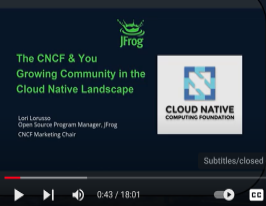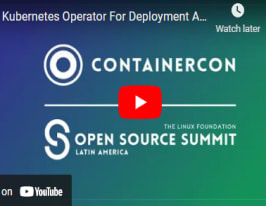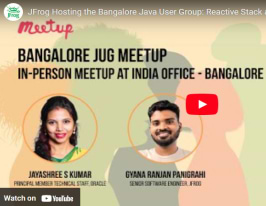Ixchel Ruiz @KubeCon + CloudNativeCon EU 2023
May 1, 2023
< 1 min read
Ixchel Ruiz, Senior Software Developer & Developer Advocate, JFrog, Aparna Subramanian, Director of Production Engineering, Shopify, and Kaslin Fields, GKE & OSS K8s Developer Advocate, Google, sit down with Savannah Peterson for KubeCon CloudNativeCon EU 2023 in Amsterdam the Netherlands.






